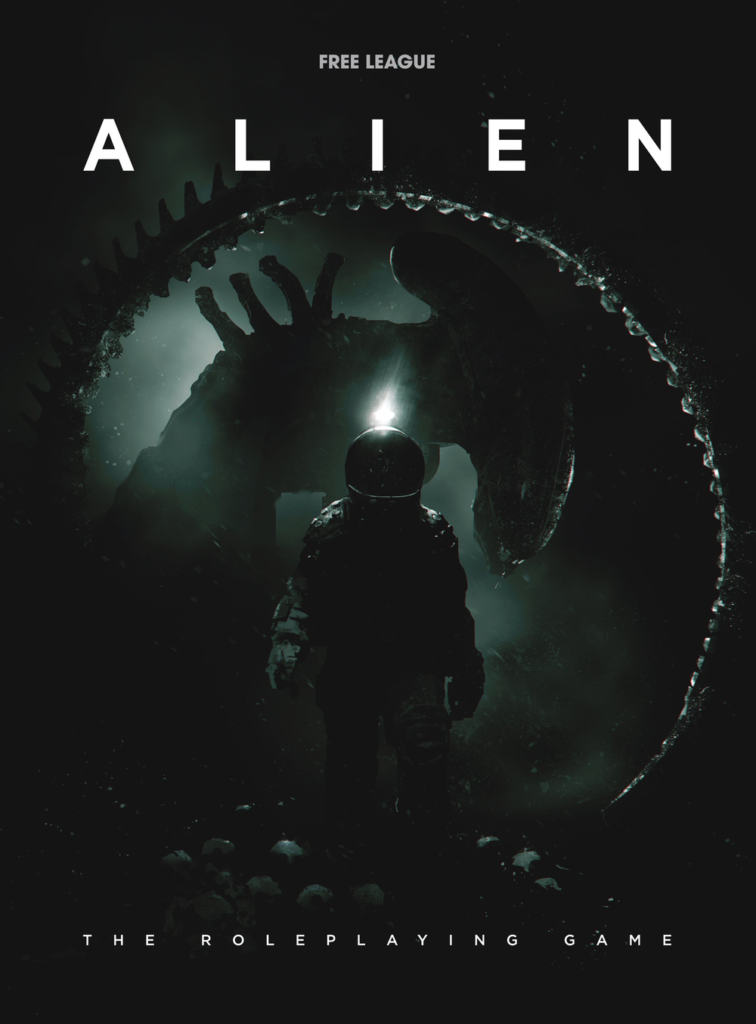I’m on a study project to improve my understanding of roleplaying games. To this end, I already have two reading projects, A Game Per Year and An Adventure Per Year. This is the third, with the goal of reading or playing 52 games made in the last few years. Originally I considered making this “A New RPG Per Week” and that’s where the number 52 comes from, even though a weekly schedule is probably not within my abilities.

The structures underlying various IPs were originally set to serve the media in which they were born. If they become popular enough, they are reborn in other mediums, creating challenges for the people who make these new works. They have to adapt an IP that wasn’t really made for this specific medium.
Alien is a popular franchise born from a movie. Its setup serves the needs of scifi horror and action films. Since Fria ligan has released a roleplaying game based on Alien, let’s ask the question: How well suited is the Alien IP for roleplaying? I don’t mean this question as a matter of taste but as a matter of design.
The basic setup of the first Alien movie could be a single-session roleplaying scenario. There’s a threat, a limited physical area to explore, mysteries to solve. You could make it into a 50-page adventure booklet.
What about if you expand your scope? Can you run a 50-session roleplaying campaign in the world of Alien?
Well, kinda, maybe… But the IP is not suited for it. Its world design is a musty Cold War relic of capitalist and communist space nations, clearly originally intended as peripheral to the action. In a long roleplaying game, you need more from the environment and the IP doesn’t really support that very well.
It’s a challenge and Alien: The Roleplaying Game works very hard to meet it. Indeed, to my eye it’s a great example of a well made roleplaying game created from an IP that’s not a perfect fit for the medium.
Alien supports two kinds of play, dubbing them Cinematic and Campaign play. Cinematic is what you’d see in an Alien movie, an action packed single-session scenario. Campaign gives the options of playing Space Truckers, Colonial Marines or Frontier Colonists and building the framework around the stories suggested by that starting point. I especially like the Space Truckers. Very few roleplaying games give you the option of building a campaign around hauling cargo but Alien is well suited to it.
In each case, the characters try to live their lives in a world full of opportunities for miserable death.
In terms of design style, Alien: The Roleplaying Game feels like a cross between Tales From the Loop and Lamentations of the Flame Princess. In a departure from the Anglo-American mainstream design style where player characters are essentially tools used by their players for collective problem solving, here the characters can have motivations that put them at odds with each other, sometimes violently. Even in an alien-infested moon colony, the social relationships between humans still matter.
There’s a lot of interesting design in the aliens themselves, the Xenomorphs who cast a long shadow over everything the player characters might do. They have differing modes of behavior, attacks broken down into tables that produce results far beyond the usual hit or miss and strengths and weaknesses that guide how to deal with them.
This section as well as the game’s insistence on the wonders of player character death is what gave distinct horror OSR game vibes. There’s a thousand ways to die here.
Perhaps because of the difficulties posed by the Alien IP, Alien: The Roleplaying Game is rich in design. Solving problems leads to interesting solutions.